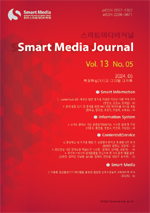
Comparison and analysis of CNN models to Address Skewed Data Issues in Alzheimer's Diagnosis
- 한국스마트미디어학회
- 스마트미디어저널
- Vol13, No.10
- : KCI등재후보
- 2024.10
- 28 - 34 (7 pages)
Alzheimer's disease is a form of dementia that can be managed by identifying the disease in its initial phases. In recent times, numerous computer-aided diagnostic techniques utilizing magnetic resonance imaging (MRI) have demonstrated promising outcomes in the categorization of Alzheimer's disease (AD). The OASIS MRI dataset was utilized which has 80,000 brain MRI images. It is suggested to resample this dataset as it is highly imbalanced and posed a challenge in preventing bias toward majority class while employing the convolution neural network (CNN) model for classification. This paper examines and extracts patterns and features of 461 patients taken from the OASIS dataset. The research has aimed at utilizing the Base Model of EfficientNetV2B0 with custom classification layers, and simplified custom CNN model, also exploring Multi-class classification across four distinct classes: Non-Demented, Very Mild Demented, Mild Demented, Moderate Demented in addition to binary classification as Non-Demented and treating other classes as demented. Furthermore, different dataset sizes were experimented with 5,000 and 20,000 for each class to be discussed in this paper. The experiment results indicate that EfficientNetV2B0 achieved the accuracy of 98% in binary classification, 99% in multiclass. Whereas custom sequential CNN model in multiclass classification presents the accuracy of 96% for 20,000 dataset size and 98% for 80,000 dataset size.
Ⅰ. INTRODUCTION
Ⅱ. METHODOLOGY
Ⅲ. EXPERIMENT RESULT & DISCUSSION
Ⅳ. CONCLUSION
ACKNOWLEDGMENT
REFERENCES